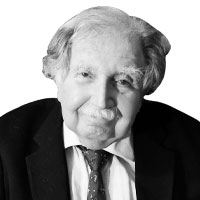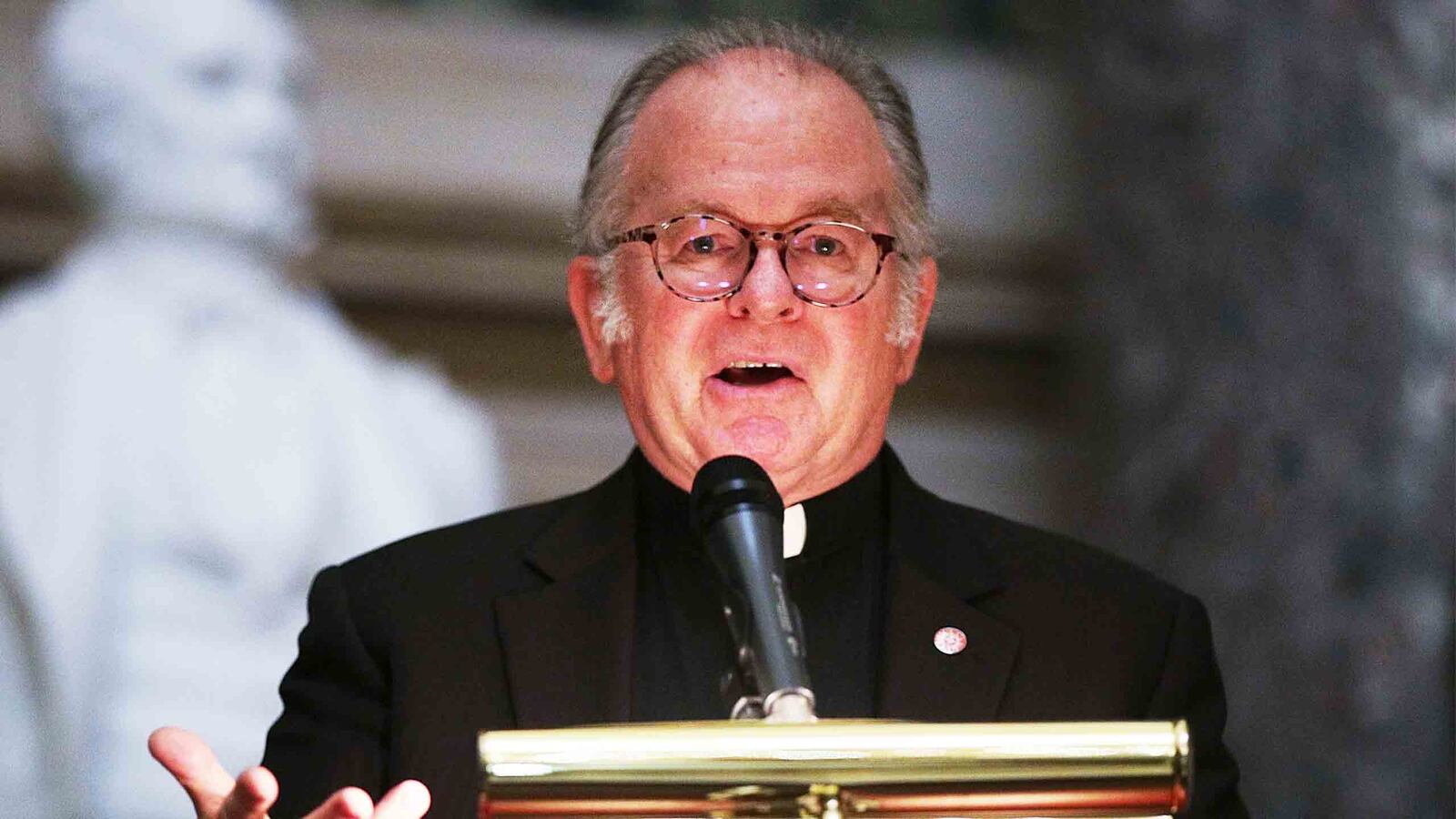An incredible thing happened in the middle of House Speaker Paul Ryan’s bungled effort to rid himself of Father Patrick Conroy, chaplain of the House of Representatives. Mark Walker (R-NC)—who is a Baptist minister as well as a congressman—opined that the successor to Father Conroy, a Roman Catholic, should have a wife and family. Since Catholic priests are celibate, they would necessarily fail to qualify for the post. Though the issue is moot since Conroy is staying on after Ryan backed down in the face of a public outcry, Walker’s views are a bracing reminder of the specter of bigotry that has stalked our nation from its earliest days.
The historical bias against Catholics—with echoes in our own times—was fueled by a Nativist reaction to Irish immigration. It was stoked by ethnic disdain, religious hatred, economic fears and patriotic passions. The Yankee-Irish riots of the 1830s and ’40s were followed by full-scale political action in the 1850s after the influx of three million Irish and German immigrants fleeing famine and persecution between 1845 and 1854. This influx, the largest in U.S. history relative to the native population, prompted a reaction by the anti-immigrant Know Nothings who sprang from a flag-waving Order of the Star Spangled Banner and appropriated the name of The American Party when they became a national political force.
After the Civil War, the Know-Nothings were politically subsumed but their legacy was still powerful. Catholic immigrants faced economic discrimination and political hostility. The American Nativists of the time did not seek to curb immigration but rather to limit Irish political power through such expedients as residency requirements, delayed naturalization, and literacy tests. It was estimated that a third of Irish immigrants—mostly rural and poor—spoke only Gaelic.
Invoking fears of a purported Catholic menace was a sure-fire way to unite a fractured Republican Party in the 1870s at the outset of the Gilded Age. The influential Protestant preacher Henry Ward Beecher spoke for many of his co-religionists, when he asserted that while Protestantism nurtured an individual conscience, Catholicism insisted on a corporate one and was thereby unsuited to a democratic United States and could not long endure here. To be sure, the issuing of an embattled Pope’s Syllabus of Errors in 1864, condemning democracy along with the separation of church and state, did not help matters. The great controversy then, as today, came over education, with the Catholic hierarchy demanding public aid for their schools fearing their children would be indoctrinated by the Protestantism of the non-sectarian public schools. The controversy eventually diminished in a stand-off but the rancor remained.
Resentments simmered through the new 20th century, masked by the arrival of a fresh influx of immigrants to target, but emerged in the run-up to World War I in 1917 with German-Americans opposed to U.S. entry into the war and many Irish-Americans having little appetite to fight a war on behalf of a British colonial empire that had bloodily suppressed the Easter rising of 1916. And the postwar era of the 1920s saw the re-emergence of the Ku Klux Klan with its virulently anti-Catholic agenda. Klan demagogues argued that Catholics could only be loyal to the Pope who demanded their absolute allegiance. Therefore, they were inherently disloyal to America. During this era, the Klan boasted more than four million members—more than any American city other than New York.
Al Smith’s landslide defeat in the 1924 Presidential election was certainly attributable in part to his Catholicism. Presumably, after the horrors of racialist nationalism were freshly revealed after World War II, it seemed a better era was upon us. Jack Kennedy’s charm, vigor, political savvy and celebrity aura in a new, more tolerant postwar age—together with his promise to keep his religion out of politics—brought America’s first Catholic President to the White House.
But while racism and nativism had seemed contained, they are now revived by demography, technology, cultural resentment and economics.
Father Conroy suggested that his initial dismissal by Paul Ryan may have been prompted by a prayer he delivered last November in which he expressed his hopes that Congress “guarantee that there are not winners and losers under new tax laws, but benefits balanced and shared by all Americans.” It was a sentiment that he had also mentioned in a Catholic journal and for which he’d been rebuked by the Speaker who told him to “stay out of politics.”
But that sentiment is straight from Scripture—among other places in Leviticus 19, where, in its King James English, we are instructed that “Ye shall do no unrighteousness in judgment: thou shalt not respect the person of the poor, nor honour the person of the mighty: but in righteousness shalt thou judge thy neighbor.”
That lawmakers would object to a clergyman urging them to exercise compassion in writing a tax law may say more about the lawmakers than the clergyman. Speaker Ryan himself is Catholic, but he has embraced a political agenda and worldview that hardly seems Christian—one that denigrates asylum seekers and divides a society into the worthy and the unworthy, Americans and aliens, Us and Them.
Rep. Walker’s suggestion that Catholics need not apply for the post of House chaplain is a reminder that when bigotry is afoot in the land, no one is safe—not even those who think they are. And the obligation of all Americans is to defend the most vulnerable, whose security provides the litmus test of our democracy and our decency.
Jack Schwartz is a former book editor of Newsday.






